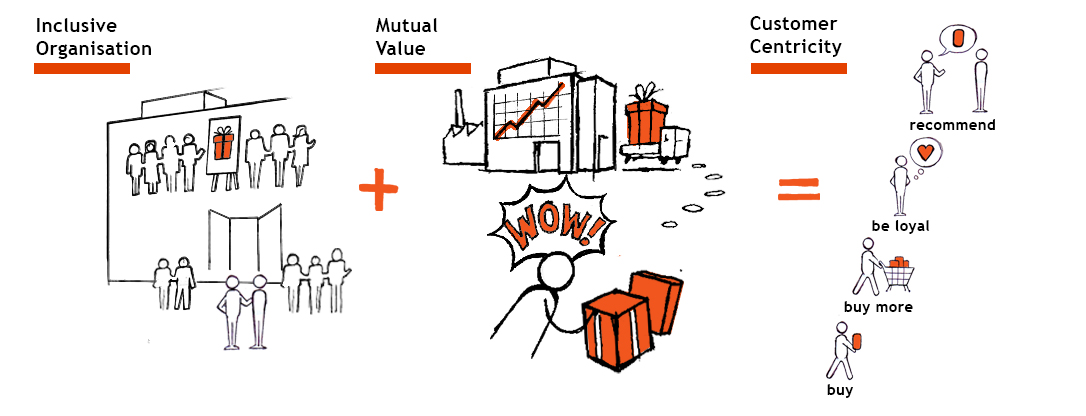Customer centricity is usually definied in a limited way with value creation for the customer (CX), not focussing on offerings or simply listening to the customer. So far there is no clear understanding what customer centricity really means. Our definition of customer centricity is composed of two central building blocks: (1) mutual value creation, and (2) inclusive organisation: “Mutual value creation” serves to ensure balanced value creation both for the customer and for the company. It represents the ability of an organisation to get their customers on board and to entice them to recommend the company to others. It also encompasses the optimisation of investment decisions based on knowledge of the value of the customer to the company. An “inclusive organisation” supports “mutual value creation” by integrating the customer as a resource and by abolishing the “silo mentality” in the organisation. The way an organisation ticks on a daily basis influences the mindset and behaviour of employees during change processes and when providing customer experiences. read more about our definition




